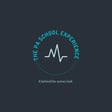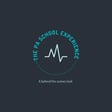Become a Creator today!Start creating today - Share your story with the world!
Start for free
00:00:00
00:00:01

19. Finding a Job
Big updates in this episode as well as things I did to secure my first job as a new grad.
--- This episode is sponsored by · Anchor: The easiest way to make a podcast. https://anchor.fm/app
Transcript
Introduction to the PA School Experience Podcast
00:00:13
Speaker
Welcome to the PA School Experience Podcast. I'm your host, Sebring Sands, and I take you through the behind the scenes look of PA School and explore what it takes to become a PA.
Using Anchor for Podcast Production
00:00:33
Speaker
If you have been wondering how I could do this podcast in PA School, I'll tell you, I use an anchor. This is the easiest way to make a podcast. Let me explain. First, it is a free hosting platform which allows anyone to start a podcast with no upfront cost. It has built-in tools which allow you to edit and record a podcast. You can even record it from your phone.
00:00:56
Speaker
Anchor will distribute your podcast for you so it can be heard on Spotify, Apple Podcast, and other major podcast platforms. You can make money from your podcast with no minimum listenership. Anchor has everything that you need to make a podcast. They make it so easy for you. Download the free Anchor app or go to anchor.fm to get started. That's anchor.fm
Career Milestones and Podcast Evolution
00:01:25
Speaker
Welcome everyone to another episode. I am back. It's been an exciting, intense couple of months since graduation, back in December. I have finally become a certified PA, which is really exciting.
00:01:44
Speaker
And since that change, I am going to be changing the name of the podcast just slightly to reflect that change in my career. So I'm just changing it to the PA experience and taking up the school because I'm no longer in school. I kind of want to reflect that in the podcast and the natural evolution that I want to portray in it.
Future Topics: Rotations and Job Hunting
00:02:08
Speaker
But I'm still planning on talking with students about rotations. I still have several of the core rotations I want to talk about and getting other perspectives. I think that's very important. That's one of the reasons why I started the podcast, but also wanted to talk about other things no one really talks about. You might hear in a few podcasts, but I want to get into the nitty gritty of, for instance, getting a job, the licensing process.
00:02:38
Speaker
interview process, all that.
00:02:40
Speaker
Today in this podcast, I want to talk about finding a job I have in the pipeline. I'm going to be talking with a friend of mine that we just passed our pants pretty much within a day of each other. And I kind of want to bring her on and talk about our experiences with prepping for the pants, which I think will be valuable. I'm not the perfect person or the best studier, but I feel like our perspectives could be very valuable.
00:03:09
Speaker
So let's get started.
Job Search Journey: Starting and Strategies
00:03:10
Speaker
So when I started looking for a job, that's a great question. There's a lot of people that start months before they finish or graduate from PA school. I heard from somebody to start a month before your
00:03:24
Speaker
like all the way done. So that's kind of what I did. I had to go back and repeat a couple weeks of rotation. I'll save that story for a little bit later after everything's kind of settled. But I started looking in December, ended up signing an offer in January, just kind of going for the timeline.
00:03:44
Speaker
But I'm going to go way back before in the fall when I'm finishing up PA school. It's down to the last couple of rotations. And if anyone knows me, they know me that I kind of freak out sometimes. I was stressing about the potential of finding a job.
00:04:03
Speaker
that i wouldn't be able to find a job and i needed a job because i have a family and you know living expenses are a little bit higher in connecticut so i needed a job as soon as possible so i was worried about this i haven't talked to my program director mention it in when i was meeting with him and he says don't worry there's plenty of jobs and i was interested in orthopedics and in connecticut
00:04:32
Speaker
There are a few orthopedic jobs. Also there's a lot of ER jobs here. And of course anywhere I think there's a lot of urgent care positions. So I started looking pretty much a week after I graduated. So this was on December 2nd.
00:04:51
Speaker
and I took the weekend to relax and then on that Monday I kind of started really getting my resume perfect the way I wanted and to submit and also a cover
Application Process: Refining and Applying
00:05:05
Speaker
letter. I used our career center. There's a person that came to our program talking about resumes and cover letters and all that stuff and she specializes in health profession.
00:05:17
Speaker
resumes and things like that so i sent her and she allowed us she helped us if you sent her your stuff to edit it and kind of help you make it the best it can be and i feel like that really really helps so i would suggest going if your school has a career center to start there to see if there any help
00:05:40
Speaker
because that really helped me feel confident in that I had a good resume to submit, also the cover letter to submit for job applications. So I started, I did that, took a few days to really perfect it. Maybe I took a whole week back and forth from editing it to getting edited and I felt like it was good enough to submit.
00:06:05
Speaker
And for a cover letter with orthopedic positions, all I had to do to change it was pretty much take out the names of the places I was applying to. And that was really easy to apply to multiple places. You could probably do that when you're applying to the same position, but you probably have to change it a bit more. If you're doing it like, for instance, orthopedics, and then you're applying to someplace in the ER, it's going to be a bit different of a
00:06:35
Speaker
structure skills that are involved that you mentioned in the cover letter so be aware of that but if you're applying to pretty much one specialty it's pretty easy to interchange you just have to make sure you proofread it so you're not applying to one place thinking
00:06:49
Speaker
It has the name of the place you're supposed to be, but it has a different name that could be awkward. So probably wouldn't land you an interview. So I finished those within a week and then I started looking for jobs.
Job Resources and Offers
00:07:02
Speaker
A great place to start is actually Indeed. There's a lot of PA positions and a lot of posts that hospitals and things like that post on their website are linked on Indeed as well.
00:07:17
Speaker
There's several hospitals I applied to that it took me directly to the website, the hospital website to apply. So indeed it's a good place to look. Also, another really good place to do is if you had any preceptors in a field that you really liked and they liked you, you can reach out to them. I had a couple orthopedic rotations in my PA education and I reached out to both preceptors.
00:07:44
Speaker
At the time when I first was looking, no one really had anything available, but a week or two after that, one of the preceptors reached out to me and said, hey, we're posting this, apply. And that went really smoothly for that looking so you can do that as well. Preceptors, people that say, hey, apply. I hadn't had I hadn't had any of those really. But if there's anyone say apply when you get back and you want to go there, definitely check into those contacts.
00:08:13
Speaker
Also, you can also look at websites of specific hospital systems or centers and looking in their career stuff, because lots of times, a lot of times it is on Indeed, but sometimes it may be not and where it might be hidden. So you can also look at those as well. The AAPA website has several, or has a place, a board with a lot of positions as well. That could be helpful. And it can even filter it between states,
00:08:41
Speaker
field and things like that, which is very helpful. So definitely take advantage of that. Everyone should be an AAP member, so you should have access to that.
00:08:51
Speaker
So after applying, I probably applied to 15, 20 positions. I also applied to places out of the state, but I didn't really get any traction with those. After I accepted an offer, I got an interview request for a position I did out of state.
00:09:11
Speaker
But it was too late and it wasn't really something I was really wanting to do, so I just told them I already accepted an offer, not worrying about it. Let's talk about some of my interview experiences. So there's pretty much only three places before I accepted an offer that I interviewed for.
00:09:27
Speaker
There was one the place the first place I interviewed at is a place I ultimately accept to offer I was I was contacted by the Recruiter that worked for this system and everything that the group within a day of applying and She was amazing recruiter. She really
00:09:49
Speaker
made me feel like they wanted me which has never happened to me. I've always felt like with interviews that I had to prove that I was worthy to be considered but with her it was the whole time it was you should work for us and this is why you should work for us.
00:10:06
Speaker
And she mentioned that a great resume. And this is what we're looking for. And that boosts my confidence a ton. And I really appreciated it, especially working, you know, entry-level CNA jobs for my health care career. To be being told this was very satisfying.
00:10:27
Speaker
and reassuring to me. The two other experiences, one I applied, reached out the next day as well, offered me an interview. And then the one is actually the one I precepted or I did a clinical rotation, the precept to reach out to apply this. It took them a week to get back to me. And I didn't know if they would ever get back to me about an interview. I was pretty confident I could get an interview because everyone liked me.
00:10:55
Speaker
And it's made it seem like they wanted me to work there. But it took a week for the HR department to reach out to me. And they didn't really schedule anything. They just called me. And it was kind of an awkward moment that they called me. Luckily, I picked up. So that was kind of a rocky start to begin with.
Interviews and Negotiations
00:11:15
Speaker
So this is kind of the starting. You really tell some places what it's going to be like just by the initial reaching out part.
00:11:25
Speaker
So of the interview process, I interviewed every one of them first virtually. The first one, I only did one virtual kind of interview thing before I was able to go visit the place. The other two, one, I only did one virtual interview and kind of was ghosted for weeks before they rejected me.
00:11:47
Speaker
And then the other one, I had a series of two or three rounds of interviews with different people all virtually and they wouldn't let me. I was a very fancy hospital system in Connecticut. I won't name names, but their policy is I couldn't even visit, which was kind of a reg fat for me because you can tell a lot by
00:12:11
Speaker
a position, a place by the field, an environment, and you can't get that virtually. I was only talking to a couple people. That was kind of a barrier that I couldn't overcome during those interview things. So that's something to think about as well. The first place after I did the virtual, I visited in person and it was great. I really felt the vibe of the place, the interactions between attendings and PAs.
00:12:38
Speaker
It really felt good, it felt like a family and I really enjoyed that. The other place is a bigger hospital system, is inpatient rather than kind of a dual outpatient inpatient or outpatient surgery ortho position. And I really couldn't get that feel because I just wasn't able to go and visit in person.
00:13:04
Speaker
But they really well explained the position and the benefits and and what it would entail. So that was kind of the whole interview process. It took, you know, between a couple of weeks. The place I received an offer from took me because it was over. The first initial interview was right before Christmas.
00:13:27
Speaker
And then I didn't get to see them until after New Year's. So it took a couple of weeks, which is fine. I wasn't on a time crunch. I wasn't going to take the pants until February 3rd. So that wasn't a big deal. But all in all, between initial application and them sending me an offer was about a month. And it was very exciting. I got a email I after the interview in person, the recruiter said they'll let me know. She's kind of the point person between
00:13:57
Speaker
the attendings interview me and the PA team and myself. And she said, you know, I interviewed on a Friday. I said, let me know. I'll let you know by Monday. She didn't reach out to me until Friday. And it was with an offer, which is really exciting. It wasn't really a negotiation. I just asked for a little bit higher base. And she was advocating for me as like, yeah, I feel like you should receive a little bit higher, too.
00:14:25
Speaker
And she went back to the person in charge of making that decision and she was able to offer me a little bit higher with a different offer letter and I eventually accepted it. And that was really exciting. It is super exciting to receive an offer and to have
00:14:45
Speaker
But in my mind, I was like, yes, all my hard work has paid off and I don't have to stress about finding a job. I was able to do it. And it's I think it's easier than I was fearing it was going to be. I won't discount that some people might have harder times finding a position, whether it be in the field they want and the location they want. I heard once that it's hard to get all three, the
00:15:12
Speaker
the location that you want and the field that you want. But I felt like I got most of that of the three. I mean, not a perfect amount of all of them, but that takes time. And as a first position, I was pretty excited about it.
00:15:29
Speaker
So there is hope.
Reflections and Future Episodes
00:15:30
Speaker
I'm telling you from somebody that, you know, I felt very mediocre in school with with stats and with my grades and everything like that. I felt more exceptional in clinically towards the end of my school education.
00:15:48
Speaker
But going from that mindset to having a position, it feels really good and it's possible. And I think that is the main reward is graduating in the Plonim. But having getting that job and having people want you, that is an incredible feeling.
00:16:09
Speaker
this is a little bit shorter episode than usual but i have hopefully next time or a couple episodes down the road i will be talking in depth about pants prep and what kind of what i did and the timeline i took and the results and actually
00:16:25
Speaker
What happened to me during the exam I feel like is very important and could be very interesting to PA students and new grads looking to take the pants so look for that in the near future and I have some exciting plans with interviews and collaborations with other people so stay tuned for all those.
00:16:47
Speaker
Thanks so much for being with me on this journey. It's been a journey and it's paid off and I hope that all the other PA journeys out there pay off as well and people get excited about the PA profession and they want to continue that and share their experiences so others can feel that they are not alone in struggles and triumphs of the PA school experience and the PA experience in general.
00:17:43
Speaker
Talk to you next time, bye.



